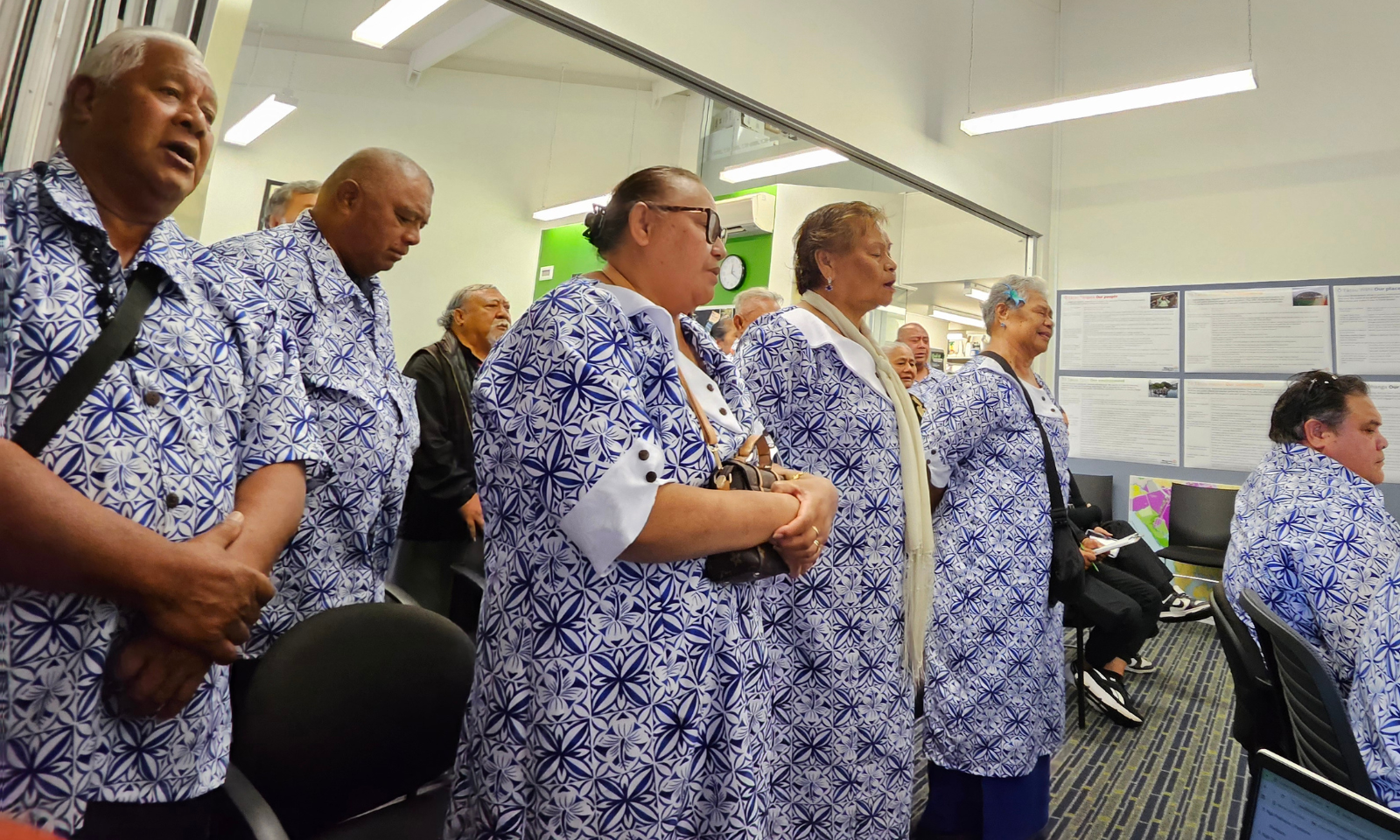Public Interest Journalism funded through NZ On Air
At the age of sixteen, Lino Kurene didn’t know applying for the Navy would lead her to become the first Samoan female Warrant Officer for the New Zealand Navy and the current Divisional Chief Petty Officer, Master at Arms.
At the time, Kurene had no real idea about the Navy and was unaware New Zealand had one.
“I didn’t actually intend to join, there was no actual plan or forethought, it just sort of happened,” she says.
After passing her recruitment tests, Kurene received an acceptance letter detailing when to leave for Auckland.
“The realisation hit me that I actually didn’t have a clue how I was going to tell my parents because I didn’t tell them I had even applied,” she says.
Being raised in a tight-knit Samoan aiga, Kurene’s departure from her home in Palmerston North was quite challenging for her parents, Patea Viliamu Luafalealo Kurene and Lino Toalamai Semisi.
She remembers her mother Lino had baked some of her best dishes before taking her to the train station.
It was only when she became a mother herself, and her children wanted to move out, that she realised how truly hard it was for her mum to let her go.
Currently, Kurene is based in Devonport as a Divisional Chief Petty Officer Master at Arms responsible for providing support and training to new recruits.
Her partner, Warrant Officer Weapon Technician Nicholas Rowe, is currently posted to Fiji as a technical advisor.
“I am blessed that my partner, who is Māori, has fully embraced the fa’asamoa and along with our children have shared in all we have done for our family, church and community.”
With over 30 years of service, Kurene did not expect to have stayed so long, nor did she intend to become the first female Samoan Warrant Officer.
“It wasn’t anything that I had considered because it wasn’t something that any of the bosses motivated me or others to do,” she says.
“All of the people of that rank around me were males and Palagi.”
It was only until she met the Pahulu twins where one asked what her goals were and Kurene told them, “to be the first female Samoan Warrant Officer.”
A couple years later, she was promoted to WOMAA.
Kurene credits her parents, aunties, and uncles for all her successes and for teaching her the values and beliefs of a hard-working Samoan.
“Their hard work without complaint and working until everything is finished is how my siblings and I, and even our children work,” she says.
“It is also the example I set for my subordinates, no matter how high in rank you are, fai se’i uma lau feau, ona malolo ai lea (work until your job is done, then you can rest).”
The importance of tautua (service) in Kurene’s family stems from her family serving in churches as Faifeau (pastors), Faletua (pastor’s wife) or Failauga (speaker).
“[My parents] were strong in their faith and no matter what hardships they faced in life, at work and in the community, they pushed on,” Kurene says.
“They were resilient and continued to serve others even when they were treated unfavourably by others. Perhaps the one proverb that has stayed with me when I think of my aiga is, ‘O le ala i le pule, o le tautua’ (the path to leadership is through service).
“Our dad always told us and our kids to try our best, and Mum was, ‘speak with God and he will listen.’ I can only pray that the work that I have done and how I have worked has made them proud.”
As a tamaita’i (woman) Samoa serving in the NZ Navy, Kurene found that: “the greatest advantage is knowing that you can use any part of your upbringing, such as your ability to cook, to help ‘nourish’ others in order to create the aiga around you by simply being open to helping others.”
But being a tamaita’i and a Samoan comes with its own challenges.
“At the beginning of my time there was little or no evidence of any Pacific Islanders in the Navy or even in the NZDF, and definitely no PI females,” Kurene says.
“Being alone meant having to fend for myself in terms of having a voice and speaking up to be heard. Fortunately, I had a couple of Māori females who were seniors who showed me not to be afraid to speak up, especially in a predominantly male workplace where even the number of Palagi Sailors significantly outnumbered other ethnicities from what I could see.”
Looking back at her journey, Kurene is humbled to know her achievements are helping others walk with confidence and with pride.
There are a significant number of Pacific people at different ranks in the defence force now, many of whom are in leadership roles.
Her humbling words for other Samoans and PI who want to join the defence force is to always:
“stand steadfast with your fa’asamoa, your culture, and identity.
“Whatever you do, do it with humility. Serve others with respect and with an open heart. Know the richness of your culture and your values will hold you in good stead as a leader of people. Galue ma le loto tautua ma le loto maualalo” (Work with a serving and humble heart).












